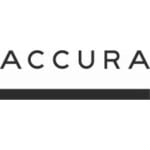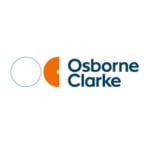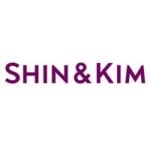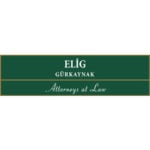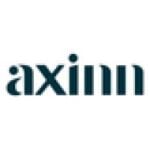-
What is the relevant legislative framework?
In line with Article 101 of the Treaty on the Functioning of the European Union (the TFEU), Article 2 of Law No. 287/1990 (the Law), as lastly amended by Law No. 118/2022, prohibits and declares null and void any restrictive agreements, concerted practices, and decisions by associations, which have as their object or effect the substantial restriction of competition within the national market or in a substantial part of it. Article 101 TFEU and Article 2 of the Law can be applied in parallel by the Italian Competition Authority (the ICA).
Article 4 of the Law follows Article 101(3) TFEU, by providing for the possibility to exempt from the application of Article 2 of the Law restrictive agreements that meet certain conditions according to which the pro-competitive benefits they generate outweigh their negative effects. Undertakings wishing to benefit from this exemption are required to carry out a self-assessment to determine whether the restrictive agreement qualifies for the individual exemption. Cartels usually do not qualify for this exemption because, by definition, they have as their object a hardcore restriction of competition.
According to Article 1(4) of the Law, the ICA has to interpret and apply national competition rules in a way which is fully consistent with EU antitrust principles. As a result, ICA decisions usually refer to EU case law, decision-making practice and related guidelines. Furthermore, EU block exemption regulations are directly applicable in Italy when Article 101(1) TFEU applies to the conduct concerned. To date, the ICA has not adopted any block exemption regulation.
From a procedural point of view, Presidential Decree No. 217/1998 sets out the procedural rules for antitrust proceedings conducted by the ICA. In addition, Law No. 689/81 concerning administrative procedures in Italy may apply to specific cases not directly governed by Presidential Decree No. 217/1998, such as non-compliance with the order to eliminate the infringement concerned (Article 15(2) of the Law). Moreover, Legislative Decree No. 24/2023, implementing EU Directive 2019/1937 on the protection of persons who report infringements of Union law and national laws, introduced a number of provisions aimed at protecting whistle-blowers, including a ban on dismissing them.
Separate provisions for investigating cartel conduct in specific industries, and industry-specific defences and exemptions, are not included in the Law.
In August 2023, the Italian legislator granted new investigative powers to the ICA (see Article 1(5) of Decree Law No. 104/2023, converted into Law No. 136/2023). In particular, the ICA now has the power to: (i) identify ‘structural risks’ to competition in a given market or sector which, in the ICA’s view, cannot be remedied either by competitive forces or as a result of traditional competition law enforcement under Articles 101 or 102 TFEU (and the corresponding national provisions) or by merger control; and (ii) impose, even in the absence of a competition law infringement, structural and behavioural remedies that the ICA considers appropriate to address the competition concerns for the future. Such intervention could be extremely far-reaching. Structural remedies could include ordering de-mergers or divestitures, and behavioural remedies could involve anything from changes to pricing and distribution policies to internal separation orders. While the ICA already had the power to conduct sector-specific inquiries to identify competition problems in a given industry, these new powers are likely to have a significant impact on competition policy enforcement in Italy, including in the area of cartels. While it is too early to assess the impact of the new powers, it is expected that the ICA will rely on them to investigate market failures or concerns in markets without dominant players, for example, when challenging oligopolistic market structures. As a result, this reform is likely to broaden the ICA’s scope for intervention significantly.
More recently, on 25 February 2025, the ICA updated its following three notices: (i) the notice on the quantification of fines for antitrust infringements (including cartels); (ii) the revised leniency notice; and (iii) the notice on the compliance programme, which outlines the conditions in which a compliance programme may be considered a mitigating factor when calculating cartel fines.
-
To establish an infringement, does there need to have been an effect on the market?
Article 2 of the Law prohibits restrictive agreements and practices that have as their object or effect the prevention, restriction or distortion of competition. Therefore, if conduct is anticompetitive by its object, as is normally the case for cartels, there is no need to analyse its effects on the market in order to establish an infringement.
Pursuant to Article 2(1)(l) of Legislative Decree No. 3/2017, which implemented Directive 2014/104/EU (the Damages Directive) in Italy, cartels are defined in a way that is fully consistent with well-established EU law. In particular, cartels are defined as restrictive agreements or practices between competitors which amount to: (i) price fixing; (ii) output limitation; (iii) import or export restrictions; (iv) market or client allocation; (v) bid-rigging or (vi) a boycott.
-
Does the law apply to conduct that occurs outside the jurisdiction?
In line with the EU well-established ‘effects doctrine’, where conduct takes place outside Italy but has restrictive effects in the Italian market or in a part of it, the ICA can apply Article 2 of the Law and Article 101 TFEU.
-
Which authorities can investigate cartels?
Pursuant to the Law, the ICA is the authority entrusted to investigate cartels.
-
How do authorities typically learn of the existence of a potential cartel and to what extent do they have discretion over the cases that they open?
The ICA can start an investigation:
- on its own motion, as a result of its monitoring activities, after conducting sector inquiries, or after receiving information from regulators and authorities with which the ICA has entered into a memorandum of understanding (g. the public prosecutor’s offices in Rome and Milan, the Italian tax police (Guardia di Finanza), the national anti-corruption authority (ANAC), the national drug agency (AIFA), and the sector regulators for energy (ARERA), telecoms and media (AGCOM), banking (Banca d’Italia), insurance (IVASS), financial advisors (OFC) and transport (ART));
- after a leniency application (see questions 9- 14);
- after receiving a complaint from a third party (an entity or an individual), which may even submit a complaint anonymously through the whistle-blowing platform available on the ICA’s website. Since the launch of the whistle-blowing platform, the ICA has received over 100 complaints, leading to several ongoing discussions with anonymous complainants and the opening of several cartel investigations.
The ICA has wide discretion in deciding whether or not to open an investigation. Its decision in this regard is subject to judicial review by administrative courts on the ground of exceeding its legal powers.
-
What are the key steps in a cartel investigation?
(a) How an investigation is initiated
See question [5].
(b) Pre-investigation
This phase includes all activities carried out by the ICA in order to decide whether to open formal antitrust proceedings. During the pre-investigation phase, the ICA proceeds independently and the parties have no right to participate (undertakings whose conduct is under scrutiny may not even know about the pre-investigation, unless they receive one or more requests for information).
Recently (Case C-511/23 – Caronte & Tourist) the EU Court of Justice rejected the 90-day time-limit within which to initiate a formal investigation, established by a national provision (Article 14 of Law No. 689/1981). However, the ICA must still comply with the reasonable time-period requirement in the conduct of administrative procedures, as it constitutes a general and essential principle of EU law.
(c) Decision to open the formal investigation
The ICA may open an investigation after assessing the information in its possession or brought to its attention by third parties. The decision to open the investigation, which is published on the ICA’s website, describes the undertakings involved, identifies the relevant markets affected by the conduct, and outlines the key issues in the case. It also identifies the case handler, sets a deadline for the final decision, enables the ICA to use stronger investigative powers, and triggers procedural safeguards to ensure the defence rights of the investigated parties. The ICA has no fixed time frame within which to close the proceedings and to issue a cease-and-desist order. This implies that, in practice, the ICA may extend the initial deadline as many times as required, for objective reasons. However, the ICA’s power to impose a fine (or a periodic penalty payment) is time-barred after five years starting from the day of the end of the infringement.
Once the ICA opens the formal investigation, the following stages differ depending on the specific type of procedure: (1) ordinary procedure; (2) commitments procedure; and (3) settlement procedure.
(d1) Ordinary procedure
Statement of Objections
Following a formal investigation, the ICA informs the parties of the results of its investigation in the Statement of Objections (the SO). The SO summarises the results of the investigation and the input provided by the parties. The SO is sent to all of the parties to the proceedings at least 30 days before the end of the investigation. It sets out the date on which the investigation formally ends. The parties may submit written replies to the SO up to 5 days prior to the date on which the investigation formally ends and may request a final hearing before the ICA board members.
End of the investigation
The date on which the investigation phase formally ends routinely coincides with the date of the final hearing. Therefore, the investigation normally ends with the final hearing. Usually, the final decision is published within a matter of weeks from the final hearing. If the ICA adopts an infringement decision, it can adopt a cease-and-desist order, and may impose a fine of up to 10% of the worldwide turnover achieved in the last financial year by the infringing undertaking. The ICA may also impose behavioural and structural remedies.
(d2) Commitments procedure
Within three months from the decision to open the investigation, the parties can offer commitments to address the ICA’s preliminary concerns (Article 14-ter of the Law). In exceptional cases, the ICA may accept commitments even after the three-month statutory deadline. If the ICA preliminarily concludes that the commitments offered are not manifestly inadequate, it publishes the commitments online and in its weekly official bulletin to market test them. Third parties can submit their observations on the commitments to the ICA within 30 days. After the market test phase, the party that offered the commitments can provide, within the following 30 days, comments on the third parties’ observations and may propose amendments to the initial commitments. If the ICA is satisfied with the result of the market test, the ICA can make the commitments binding for a given period of time (usually not beyond five years) and close the proceedings without any finding of infringement.
(d3) Settlement procedure
See questions 15-16.
-
What are the key investigative powers that are available to the relevant authorities?
During the proceedings, the ICA has the power to:
- require undertakings to provide all necessary information (request for information);
- summon and hear any person (not necessarily working for, or at, an investigated undertaking) who may have useful information for the investigation;
- conduct unannounced inspections (dawn raids);
- order expert reports and economic and statistical analyses as well as arrange for consultation with experts; and
- fine undertakings in case of failure to cooperate.
a) Request for information
The ICA can make written requests for information and documents from undertakings and any other legal or natural person. Until 2022, the ICA was entitled to make such requests for information only after formally opening the investigation. However, since 2022, the ICA can make such requests ‘at any moment’, even before the decision to formally open the investigation. Requests must: (i) provide the addressee with a reasonable period of time in which to reply, also considering the complexity of the information requested (in any event, this period cannot exceed sixty days, unless it is extended following a reasoned request); (ii) state the legal bases on which they are made and be proportionate; and (iii) not oblige the addressee to admit any infringement of competition law.
b) Interviews
The ICA can also summon and hear any person (not necessarily working for, or at, an investigated undertaking) who may have useful information for the investigation. Therefore, directors and/or employees may be heard (in person or virtually), if they are considered to be in possession of useful information.
c) Inspections
The ICA can enter and inspect all business premises, land or means of transport of the parties under investigation. Under the provisions introduced by Legislative Decree No. 185/2021 (the ECN+ Decree), which implemented Directive (EU) 2019/1 (the ECN+ Directive), the ICA is also entitled to inspect the private premises of directors, managers, and other members of staff of undertakings. The inspection of private premises can only be carried out with the prior authorisation of the judicial authority. That authorisation can only be provided if there are reasonable grounds to suspect that evidence that may be relevant to prove an infringement is stored in such premises. The inspections are normally unannounced.
During the inspections, the ICA can check business documents including electronic documents (even those stored on the cloud) and take copies (not originals). The ICA can also ask for explanations of facts and documents relating to the subject matter and the purpose of the inspection and can make oral requests for information and documents (that are to be reported, together with the corresponding oral replies, in written minutes).
During the dawn raid, the ICA is generally assisted by the Italian tax police (Guardia di Finanza).
If the inspection takes more than a day (which is very rare), the ICA can seal any business premises, records and IT systems until the inspection is over.
d) Expert reports
Under the provisions introduced by the ECN+ Decree, the ICA now has the power to order expert reports and/or economic and statistical analyses, as well as arrange for consultations with experts. The introduction of this new power is particularly welcome at a time when economic analysis is becoming increasingly important as cartels become more complex.
e) Fines
In the case of failure to cooperate or comply with investigative measures, the ICA can impose a fine of up to 1% of the total turnover achieved worldwide in the event that the company refuses or fails, without justification, to: (i) provide the information or documents required; (ii) appear at a formal hearing convened by the ICA; or (iii) submit to an inspection. It can also impose periodic penalties of up to 5% of the company’s average daily turnover for each day of delay in complying with the ICA’s request.
The ICA’s powers to impose fines can also be exercised against individuals. In particular, pursuant to Article 14(7) of the Italian Competition Law, the ICA may impose a fine of from €150 to €25,823 and late penalty payments of from €150 to €25,823 on individuals who:
- prevent the ICA from carrying out an inspection;
- in response to an ICA request for information, provide inaccurate, incomplete or misleading information, or fail to provide the information within the deadline without a valid reason, if the requested information may prove their responsibility for an infringement punishable by an administrative fine or a criminal offence;
- fail to appear at a formal hearing convened by the ICA.
-
On what grounds can legal privilege be invoked to withhold the production of certain documents in the context of a request by the relevant authorities?
The protection of legal privilege is not explicitly provided for in the Law. However, in competition proceedings the ICA follows EU case law according to which the protection of legal privilege is subject to two cumulative conditions: (i) the communication must be made for the purposes and in the interests of the client’s rights of defence; and (ii) the communications must come from independent lawyers (lawyers who are not bound to the client by a relationship of employment), who are authorized to exercise the profession in the EU. Therefore, in-house counsel does not enjoy legal privilege rights.
Undertakings may object to any request for or seizure of materials covered by professional legal privilege. The ICA should accept the application of privilege to: (i) all written communications exchanged with external counsel (i.e. addressed to or received from external counsel, seeking or giving legal advice); (ii) internal notes prepared by the undertaking which report on the content of communications with external counsel; and (iii) internal preparatory documents prepared by the undertaking exclusively for the purpose of seeking legal advice from external counsel, including documents that have not yet been exchanged with external counsel. If disputed, a copy of the document is to be put in a sealed envelope and, at a later stage, the ICA shall decide whether to put it in the case file or, if privileged, return it to the undertaking.
-
What are the conditions for a granting of full immunity? What evidence does the applicant need to provide? Is a formal admission required?
Pursuant to Article 15-quater of the Law, in order to be granted full immunity – or even a reduction in the fine – applicants must meet the following general conditions for the application of favourable treatment:
- terminate their participation in the alleged secret cartel no later than immediately after filing the leniency application unless the ICA requests or consents otherwise;
- cooperate with the ICA genuinely, fully, on a continuous basis and expeditiously, throughout the entire duration of the investigation;
- in the period prior to the formal submission of the application, did not destroy, falsify or conceal relevant evidence, and did not disclose to anyone (except to other competition authorities) the intention to make a leniency application and its content.
In addition, full immunity can only be granted to the first leniency applicant, provided that it meets the following cumulative conditions:
- discloses its participation in a secret cartel;
- provides evidence which: (a) enables the ICA, at the time it receives the application, to carry out a targeted inspection with respect to the cartel, provided that the ICA is not yet in possession of sufficient evidence to carry out such an inspection, or has not already done so; or (b) according to the ICA, is sufficient to establish the existence of a secret cartel, provided that the ICA is not yet in possession of sufficient evidence to ascertain the infringement and that no other undertaking has been granted immunity in relation to the same cartel.
Undertakings that coerced others to take part or remain in a cartel cannot be granted full immunity.
Leniency applicants must provide to the ICA all evidence in their possession – or to which they may have access – relating to the cartel. In particular, the following information shall be provided to the ICA:
- the applicant’s name and address;
- the name and address of the other undertakings participating in the secret cartel at issue;
- a detailed description of the secret cartel, including an indication of the goods and services covered by the cartel, its geographic scope and duration, as well as an illustration of the nature of the conduct, the aims pursued and the manner in which it was implemented;
- information about other applications for immunity or reduction of fines that the undertaking has already filed or intends to file with other competition authorities in relation to the same cartel.
Leniency applications may be submitted in writing or orally. The ICA informs the applicant of whether or not immunity has been granted. If an application for immunity is rejected, the applicant can request the ICA to assess its application for a reduction in the fine.
-
What level of leniency, if any, is available to subsequent applicants and what are the eligibility conditions?
As at the EU level, there are two criteria on the basis of which the ICA defines the size of the reduction in the fine to be granted: (a) the timeliness of the cooperation provided; and (b) the evidentiary value of the evidence supplied (so-called ‘significant added value’).
In 2025 the ICA adopted a revised leniency notice in order to increase the incentives for companies to come forward earlier (see ICA Resolution No. 31467 of 25 February 2025, which came into effect on 10 March 2025, for proceedings initiated after that date). Pursuant to that notice the amount of the potential reduction in fines depends on the timing of the leniency application. In particular, fines for:
- the first undertaking to provide significant added value can be reduced by 30-50%;
- the second undertaking to provide significant added value can be reduced by 20-30%; and
- subsequent undertakings that provide significant added value can be reduced by up to 20%.
-
Are markers available and, if so, in what circumstances?
Pursuant to Article 15-sexies of the Law, immunity applicants may request the ICA to grant them a marker and set a deadline for the completion of the leniency application by providing all the evidence required. Undertakings applying for a reduction in the fine cannot request a marker.
The request must be duly reasoned, and the ICA has full discretion in deciding whether or not to grant the request.
When requesting a marker, the undertaking has to provide the ICA with at least the following information:
- its own name and address;
- the name and address of the other undertakings participating in the secret cartel at issue;
- a detailed description of the secret cartel, including an indication of the goods and services covered by the cartel, its geographic scope and duration, as well as an illustration of the nature of the conduct, the aims pursued and the manner in which it was implemented;
- information about other applications for immunity or reduction of fines that the undertaking has already filed or intends to file with other competition authorities in connection with the same cartel.
-
What is required of immunity/leniency applicants in terms of ongoing cooperation with the relevant authorities?
Leniency applicants are required to cooperate with the ICA genuinely, fully, on a continuous basis and expeditiously, throughout the entire duration of the proceedings. In particular, undertakings are required to:
- promptly provide the ICA with all relevant information and evidence in their possession;
- remain available for the ICA, promptly responding to any request;
- endeavour to ensure that, where necessary, their directors, managers and other employees – and, to the extent practicable, those who have been employees of the undertaking at an earlier time – may be heard by the ICA; and
- refrain from destroying, altering or concealing any relevant information or documents.
Moreover, applicants are required not to disclose to anyone (except to other competition authorities) the existence of the leniency application and its content, until the ICA has sent its SO.
The immunity granted by the ICA is conditional on the applicant meeting the general conditions for the application of favourable treatment throughout the whole investigation. As a result, a breach of such obligations may result in the grant of immunity being revoked.
-
Does the grant of immunity/leniency extend to immunity from criminal prosecution (if any) for current/former employees and directors?
Pursuant to Article 31-quater of the Law, current and former directors, managers and other employees of an immunity applicant enjoy protection from criminal penalties that may be imposed in relation to their involvement in the secret cartel covered by the immunity application. The grant of the exclusion from criminal penalties is conditional on the following requirements:
- submission of a valid immunity application to the ICA, the Commission or another national competition authority (NCA);
- the individuals in question actively cooperate with the relevant competition authority and the public prosecutor, providing useful information to secure proof of the offence and to identify other persons responsible for it;
- the application is submitted before the applicant becomes aware that criminal investigations have been opened for the same facts.
This provision is without prejudice to the right of victims to seek full compensation for any harm suffered.
-
Is there an ‘amnesty plus’ programme available in respect of evidence provided to prove additional infringements?
The 2014 ICA Guidelines on Fines introduced a so-called ‘amnesty plus’ programme, which is also provided for in the revised version of the Guidelines adopted in 2025 (see ICA Resolution No. 31466 of 25 February 2025). In particular, it is possible that, once all aggravating and mitigating circumstances have been applied, the amount of the fine can be further reduced by up to 50% of the basic amount. The fine may be reduced in this way if, during the investigation, the undertaking provides information and documentation that, including by means of a targeted inspection, is considered decisive for the establishment of an infringement other than the one that is the subject matter of the investigation and that falls within the scope of the leniency programme. In such a case, the undertaking may also benefit from conditional immunity from fines for that other infringement.
-
Does the investigating authority have the ability to enter into a settlement agreement or plea bargain and, if so, what is the process for doing so?
The settlement procedure was introduced in Italy by the Annual Competition Law of 8 August 2022, which added a new provision (Article 14-quater) to the Law. On 22 May 2023, the ICA issued a Notice on settlements and set out more detailed procedural rules.
The current settlement procedure follows the EU one closely and consists of five main steps:
- after the deadline to offer commitments has expired and until the notification of the SO, the ICA may send a written communication to all the parties to the proceeding, inviting them to express in writing their willingness to participate in discussions in order to reach a settlement agreement (parties may also wish to informally reach out to the ICA to express their interest in the procedure). The declaration of interest does not imply any admission of the infringement;
- in the event that only some of the parties express their willingness to settle, the ICA may engage in bilateral discussions with such parties. Therefore, hybrid settlements are allowed. During the discussions, the ICA will inform the parties about the allegations it intends to raise against them, the evidence used to support the allegations and the range of potential fines. Upon request, the ICA may also give access to a non-confidential version of any available document within the case file, in order to enable the requesting party to ascertain its position;
- if the outcome of these discussions is positive, the ICA may set a deadline by which the undertakings concerned must submit their written settlement proposals, reflecting the results of the discussions. The proposals shall include an acknowledgment of the infringement and specify the highest amount of the fine which the party is willing to accept. With the proposal, the parties shall also waive their rights to access the case file, to submit defensive briefs and to request the final hearing before the ICA board members;
- if the ICA accepts the parties’ proposals, it shall issue an SO reflecting this, which the parties will be required to confirm;
- finally, the ICA will issue the settlement decision in accordance with the agreement reached with the parties. Therefore, no court approval is required to complete the procedure.
However, the ICA may switch to the ordinary procedure at any moment. In such a case, the parties’ admissions of liability shall be deemed to be withdrawn and shall not be used as evidence.
Notably, the Italian procedure differs from the EU one with regard to the settlement’s scope of application and reduction of fines. Unlike the EU procedure, parties can apply for a settlement before the ICA not only in the case of infringements of Article 101 but also in the case of infringements of Article 102 TFEU (or the corresponding Articles 2 and 3 of the Law). Moreover, the percentage of the reduction in the fine that the ICA may grant varies from 10% in the case of secret cartels to 20% in other cases.
-
What are the key pros and cons for a party that is considering entering into settlement?
Like in the EU procedure, there are several reasons why a party may consider entering into a settlement with the ICA. First, if successfully completed, the procedure leads to a reduction in the fine. Secondly, the discussions leading to the settlement decision may represent a favourable opportunity for the parties to informally influence the ICA’s view on some aspects of the allegations. Moreover, the settlement procedure provides a higher degree of confidentiality for the case file, thus reducing the risk that relevant documents will be used in follow-on actions. Also, as settlement decisions tend to be shorter and less detailed, they may leave fewer grounds for follow-on claims. Finally, settlements allow for a quicker administrative process, thereby reducing legal costs.
On the other hand, there are also possible disadvantages in relation to the settlement procedure. First, as settling requires the admission of guilt, it may have negative reputational consequences. Also, it may trigger further investigations and reduce the likelihood of success for infringers in follow-on actions. Secondly, the application for settlement necessarily implies a restriction on the rights of defence. Finally, speeding up the administrative process may not always be a satisfactory option for infringers, as it may lead to earlier payment of fines and faster follow-on actions.
-
What is the nature and extent of any cooperation with other investigating authorities, including from other jurisdictions?
At the national level, the ICA can correspond with all public administrations and bodies subject to public law and can request cooperation from them for the performance of its functions. For instance, Law No. 262/2005 addresses the relationship between the ICA and Italian regulatory authorities in financial markets (such as Banca d’Italia and Consob). It provides for cooperation, including information sharing, and coordinating their separate actions, including by way of memoranda of agreement. Moreover, the ICA may use its powers in connection with the particular goals of investigations of the Italian tax police.
At the EU level, the ICA participates in the relationships established by EU law (including more recently by the ECN+ Directive, implemented in Italy by the ECN+ Decree). Indeed, Italy is part of the European Competition Network established by Regulation No. 1/2003. This requires cross-border cooperation between the Commission and the NCAs within the EU, including the ICA.
In 2023, the ICA requested investigative assistance from the competition authorities of Germany and the Netherlands under Article 22(1) of Regulation No. 1/2003 in order to carry out inspections in the jurisdictions of the requested authorities (Case No. A567). In 2024 the ICA requested the cooperation of the Dutch National Competition Authority to carry out a parallel inspection in the Netherlands at the premises of an undertaking investigated by the ICA (Case I868). In turn, in 2023, the ICA provided investigative assistance twice, conducting inspections on behalf of the Commission and of a national authority.
At the wider international level, the ICA participates in the International Competition Network, the Organization for Economic Cooperation and Development and the United Nations Conference on Trade and Development
-
What are the potential civil and criminal sanctions if cartel activity is established? How often are civil sanctions and/ or criminal penalties imposed in practice following a finding of an infringement?
There are administrative, civil and criminal sanctions.
Administrative sanctions: The ICA may order the cartel participants to cease their conduct and may impose behavioural and structural sanctions, as well as monetary sanctions. Only companies can be held liable for an antitrust infringement. There are no personal administrative fines for individuals (except for failure to cooperate or comply with investigative measures).
Civil sanctions: Any agreement, decision or concerted practice which infringes the prohibition on cartels is null and void pursuant to Article 1418 of the Italian Civil Code. The civil sanction of nullity applies automatically. However, it is difficult to assess how often nullity of an anticompetitive agreement is then relied on in civil proceedings.
Criminal sanctions: Criminal sanctions for anticompetitive conduct exist only for bid-rigging.
-
What factors are taken into account when the fine is set? Does the existence of an effective corporate compliance strategy impact the determination of the fine? In practice, what is the maximum level of fines that has been imposed in the case of recent domestic and international cartels?
Fines must serve the dual purpose of punishing the anticompetitive conduct and deterring its recurrence. Therefore, the ICA will adjust the fine according to the gravity and duration of the conduct. The basic amount of the fine is calculated as follows: first, the ICA identifies the company’s annual sales of the product affected by the infringement. Then, a percentage is added to this amount, up to 30%, depending on the gravity of the infringement. Finally, this amount is multiplied by the duration of the infringement in years, months and days. The ICA may also decide to include in the basic amount an additional fixed amount (a so-called ‘entry fee’) of between 15% and 25% of the relevant turnover.
The basic amount may be further increased or decreased if certain aggravating or mitigating circumstances apply. For example, the fine may be increased if the company played a decisive or leading role in the cartel. Conversely, the fine may be reduced if the company’s involvement was limited or if the company adopted a specific compliance programme in line with national and European best practices. Furthermore, the fine may be increased by up to 50% for deterrence if the company responsible for the infringement had a particularly high worldwide turnover in relation to the value of sales of the goods or services that are the subject of the infringement, or if it belongs to a group of significant economic size.
Specific reductions are provided for leniency applicants and where the companies provide evidence of a new infringement that is different to the one under investigation.
In any event, the fine imposed on an undertaking cannot exceed the statutory limit of 10% of the total turnover in the last full business year preceding the adoption of the decision against the infringing undertaking. If it exceeds the statutory limit, the fine must be reduced accordingly.
-
Are parent companies presumed to be jointly and severally liable with an infringing subsidiary?
Parent companies are liable for the anticompetitive conduct of their subsidiaries if the parent company exercises substantial control over the subsidiary. In line with EU case law, control is presumed in the case of wholly-owned subsidiaries.
-
Are private actions and/or class actions available for infringement of the cartel rules?
Both private actions and class actions are available for infringement of the cartel rules in Italy.
Private enforcement, particularly in the form of individual or group actions (but not yet class actions, for further details on which see below), has been increasing in the past few years in Italy, especially following the adoption of the Damages Directive and its national implementation (Legislative Decree No. 3/2017). While so-called follow-on actions (i.e. actions that rely on the finding of a competition law infringement by a competition authority such as the Commission or the ICA) are most common, so-called standalone actions (i.e. actions where applicants also need to demonstrate the competition law infringement by which they claim to have been damaged) are possible.
Class actions have long been reserved for consumers and their organisations, but a recent legislative reform (Law No. 31/2019) also entitles businesses to bring class actions. However, as far as we are aware, class actions for an infringement of the cartel rules have not been brought in Italy to date.
In Italy, litigation funders actively promote and start actions.
-
What type of damages can be recovered by claimants and how are they quantified?
While Italian law does not provide for an exhaustive list of the types of damages that can be recovered, they normally include actual loss, loss of profit and interest. Moreover, the amount of damages that may be determined at the end of an action is normally increased to account for currency revaluation. The general principle is that successful applicants should be put in the same condition they would have been if the competition law infringement had not occurred.
Damages are typically quantified by an independent expert appointed by the Court. The expert is asked to answer a set of questions, which are defined by the Court after it has heard the parties, and relate to the assessment of the damages and the damage itself. Parties may appoint their own experts who liaise with the court-appointed expert by, inter alia, attending meetings, submitting data, and filing briefs and replies.
There is no established way to quantify damages, although the methodologies outlined in the Commission’s Practical Guide on quantifying antitrust harm in damages actions (SWD(2013) 205, 11 June 2013) normally play an important role.
That said, under certain conditions courts are empowered to quantify damages based on equitable principles. However, in complex litigation matters such as those relating to competition law infringements, quantification based on equitable principles is unusual and is normally limited to minor aspects of the estimation exercises or adjustments to the estimates of the court-appointed expert.
-
On what grounds can a decision of the relevant authority be appealed?
Final and interim decisions of the ICA may be appealed before administrative courts, i.e. the Regional Administrative Court of Lazio (the TAR Lazio) in the first instance and the Council of State in the second instance.
Grounds of appeal against ICA decisions include: (i) violations of law; (ii) lack of competence; and (iii) excess of power. Based on these grounds, applicants may allege violations regarding, for example: (i) factual findings of the ICA; (ii) compliance with procedural rules; (iii) the legal assessment of the case; and (iv) the amount of the fine imposed. Regarding the amount of the fine imposed, both the TAR Lazio and the Council of State can carry out a full jurisdictional review, meaning that they may even directly re-determine the amount of the fines originally imposed by the ICA.
Filing an appeal has no automatic suspensive effect. Applicants must comply with decisions of the ICA (including by paying the relevant fines), unless they obtain a suspension order, in which case they would typically be requested to post a bank guarantee.
Other than appealing first before the TAR Lazio and then before the Council of State, under certain conditions applicants could in theory appeal ICA decisions by means of an extraordinary appeal to the President of the Italian Republic. In practice, this action is very rarely used, including because, at the request of the respondent (the ICA), the action may be converted into an ordinary appeal before the TAR Lazio.
-
What is the process for filing an appeal?
ICA decisions may be appealed before the TAR Lazio within 60 days following their notification to the undertaking. The appeal must be notified to the ICA and to any other interested party as the case may be (e.g., the immunity recipient). Within 15 days from the latter notification, the appeal must be filed with the TAR Lazio.
Once the TAR Lazio has scheduled the hearing on the merits of the appeal, the parties may file (i) documents up to 20 days before the hearing; (ii) briefs up to 15 days before the hearing; and (iii) reply briefs up to 10 days before the hearing.
Following the hearing on the merits of the appeal, the TAR Lazio delivers its judgment, in theory within 23 days but delays are common. Usually the judgment is instead delivered two to three months after the hearing. It may also take longer where the judgment is suspended pending a referral to the ECJ or a more in-depth procedural investigation (both of which are extremely unusual).
Judgments of the TAR Lazio may be appealed before the Council of State within 30 days from their notification or within three months from their publication in case of lack of notification. The procedure before the Council of State follows the same rules as that before the TAR Lazio.
Council of State rulings could be appealed for revocation before the same court and, in theory, before the Italian Supreme Court but only on grounds of jurisdiction. Both procedures require special conditions and are rarely used in practice and even more rarely upheld.
As mentioned, ICA decisions could in theory be appealed to the President of the Italian Republic. Extraordinary appeals to the President of the Italian Republic have to be lodged within 120 days following notification of the ICA decision.
-
What are some recent notable cartel cases (limited to one or two key examples, with a very short summary of the facts, decision and sanctions/level of fine)?
Case I864 – Price of biofuel for motor vehicles
On 11 July 2023, the ICA initiated proceedings against some of the largest oil companies which are active in Italy for alleged collusive behaviour in relation to fixing the price of the ‘bio-component’ (i.e. the component derived from plant sources, biomass, or recycled oils) of motor fuels (Decision No. 30705 of 11 July 2023). Under current national legislation, at least 10% of the blend that makes up motor fuel sold in Italy must be biofuel. The investigation was launched following a report received by the ICA from a whistle-blower. According to the report, the oil companies allegedly agreed to apply the same price increases for the ‘bio component’ as those communicated from time to time by one or more ‘leading’ companies to a trade magazine and announced by the latter in its publications. The ICA alleges that the collusive conduct began in January 2020 and enabled the oil companies to increase the price of the ‘bio component’ regardless of the actual costs incurred by each oil company to procure biofuel, thereby distorting competition in the market for the distribution of motor fuels in Italy. The investigation is still ongoing. This case is particularly relevant as the increased use of biofuels for transport is one of the tools on which the EU relies in order to: (a) reduce its dependence on imported energy; (b) influence the fuel market for transport; and (c) improve the security of energy supply in the medium and long term.
Case I868 – Byooviz/Mancata commercializzazione
In 2024, the ICA initiated proceedings against eight pharmaceutical companies to investigate suspected pay-for-delay practices related to the marketing in Italy of Byooviz, a biosimilar drug containing the active ingredient ranibizumab. Byooviz is developed and marketed by Samsung and Biogen. In August 2021, Byooviz received marketing authorisation from the European Medicines Agency as a biosimilar of Lucentis, which is developed and marketed by Roche/Genentech and Novartis for the treatment of serious ophthalmological diseases. The Italian patent for Lucentis expired in July 2022. Samsung and Biogen are under investigation for suspected collusion with the rights holders to Lucentis (the originator) to delay entry of the generic/biosimilar drug (Byooviz) into the Italian market well beyond the relevant patent expiration date, in exchange for early entry into the US market before expiration of IP rights in the United States. This investigation highlights the ICA’s continuous commitment to fostering competition in the pharmaceutical sector by supporting the timely entry of generics and biosimilars. It also marks a significant step in tackling pay-for-delay agreements. Despite the complexities of IP issues in this industry, the ICA continues to test the boundaries of competition law in the balance between patent rights and regulation.
-
What are the key recent trends (e.g. in terms of fines, sectors under investigation, any novel areas of investigation, applications for leniency, approach to settlement, number of appeals, impact of hybrid working in enforcement practice – e.g. dawn raids of domestic premises, ‘hybrid’ in-person/virtual dawn raids, access to personal devices, etc.)??
Since the introduction of a new whistleblowing tool in 2023, there has been a significant increase in ICA enforcement action against cartels. The ICA has opened numerous investigations, most of which remain ongoing.
Over the past few years, the ICA has opened cartel investigations in a wide range of sectors, from traditional manufacturing sectors, including cast iron, copper electrical cables and hollow glass, to consumer goods sectors, such as crisps and vehicle fuel. It has also opened an investigation in the pharmaceutical sector, on an alleged coordinated strategy of pharmaceutical companies to delay biosimilar drug entry in the Italian market.
Overall, the ICA appears to be prioritising investigating cartels, relying on its new tools, with a broader sectoral approach to detecting and addressing anticompetitive behaviour across manufacturing and consumer-facing markets.
Moreover, the ICA is expected to take an even more proactive approach to cartel detection in the coming months. In this regard, the ICA’s internal Data Science Unit, established in 2024 to tackle the challenges of the digital age, is expected to play a key role. The purpose of the new unit, coordinated by the ICA’s chief economist, is to provide the ICA with specialist support in relation to data, computer techniques, artificial intelligence and algorithms. In particular, it is expected to uncover potential anticompetitive behaviour using new screening activities, develop techniques for analysing algorithms used by large digital platforms, and increase the efficiency of investigative activities, including by developing advanced techniques for document analysis. It is important to monitor these developments closely, not least given the wide-reaching remit of the unit’s activities and the potential implications for the rights of defence of companies.
-
What are the key expected developments over the next 12 months (e.g. imminent statutory changes, procedural changes, upcoming decisions, etc.)?
Over the next 12 months, the ICA is expected to continue enhancing the proactive detection of cartels, mainly by implementing investigations of its own motion and using the whistle-blowing platform. This tool is likely to provide the ICA with insider knowledge and assistance, which can be a powerful means to uncover cartels and other anticompetitive practices more swiftly than might otherwise be possible.
The current economic climate is expected to play a key role in shaping ICA priorities. In this regard, it is likely that the ICA will continue to prioritise tackling bid-rigging, in order to safeguard fair competition in public procurement. Other key issues are also expected to shape its enforcement agenda, not least sustainability, consumer protection, and labour market issues.
The ICA has already emphasised the importance of sustainability. In particular, in recent cartel cases (such as Case I838 – Restrizioni nell’acquisto degli accumulatori al piombo esausti), it has tackled cartels that undermine environmental goals and the circular economy, and made it clear that sustainability is a top priority.
As demonstrated in its recent approach to the fuel sector, it is likely that the ICA will continue to focus on anticompetitive agreements that pass-on inflation-driven cost increases to consumers. It is also expected to continue to prioritise protecting consumers from coordinated price hikes.
Tackling labour market issues may well become a priority. In this regard, the Commission Guidelines on Horizontal Co-operation Agreements, and the May 2024 policy paper on Antitrust in Labour Markets, clarified that wage-fixing and no-poaching agreements will, in most cases, qualify as restrictions by object. Labour markets tend to be national or local. National competition authorities, including the ICA, are therefore often better placed to address these issues. Investigations are already under way in several European countries. The ICA has not yet launched cases on no-poaching and wage-setting agreements. However, businesses should be cautious, as it may well do so.
Leniency applications may play an important role in tackling cartels going forward. After years in which there were no leniency-driven cases, the ICA launched an investigation into the copper cable manufacturing sector in December 2024 (Case I873), its second leniency-triggered case since 2019. To encourage more companies to come forward, the ICA issued the Revised Leniency Notice in 2025.
The ICA is currently conducting ten cartel investigations: one opened in 2025 (Case I876), six opened in 2024 (Cases I868, I869, I871, I872, I873 and I874) and three opened in 2023 (Cases I864, I866 and I867). These investigations concern various sectors. One relates to alleged coordination of commercial strategies among pharmaceutical companies to delay the entry into the Italian market of a drug intended for the treatment of eye diseases (Case I868, see question 25 above). One focuses on alleged price coordination in relation to biofuel (Case I864, see question 25 above). One concerns seven foundries suspected of coordinating list price increases for cast iron (Case I866). Another one relates to an alleged anticompetitive agreement among nine major producers of hollow glass (Case I867). Final decisions on most of these cases are expected to be adopted in the next 12 months.
Italy: Cartels
This country-specific Q&A provides an overview of Cartels laws and regulations applicable in Italy.
-
What is the relevant legislative framework?
-
To establish an infringement, does there need to have been an effect on the market?
-
Does the law apply to conduct that occurs outside the jurisdiction?
-
Which authorities can investigate cartels?
-
How do authorities typically learn of the existence of a potential cartel and to what extent do they have discretion over the cases that they open?
-
What are the key steps in a cartel investigation?
-
What are the key investigative powers that are available to the relevant authorities?
-
On what grounds can legal privilege be invoked to withhold the production of certain documents in the context of a request by the relevant authorities?
-
What are the conditions for a granting of full immunity? What evidence does the applicant need to provide? Is a formal admission required?
-
What level of leniency, if any, is available to subsequent applicants and what are the eligibility conditions?
-
Are markers available and, if so, in what circumstances?
-
What is required of immunity/leniency applicants in terms of ongoing cooperation with the relevant authorities?
-
Does the grant of immunity/leniency extend to immunity from criminal prosecution (if any) for current/former employees and directors?
-
Is there an ‘amnesty plus’ programme available in respect of evidence provided to prove additional infringements?
-
Does the investigating authority have the ability to enter into a settlement agreement or plea bargain and, if so, what is the process for doing so?
-
What are the key pros and cons for a party that is considering entering into settlement?
-
What is the nature and extent of any cooperation with other investigating authorities, including from other jurisdictions?
-
What are the potential civil and criminal sanctions if cartel activity is established? How often are civil sanctions and/ or criminal penalties imposed in practice following a finding of an infringement?
-
What factors are taken into account when the fine is set? Does the existence of an effective corporate compliance strategy impact the determination of the fine? In practice, what is the maximum level of fines that has been imposed in the case of recent domestic and international cartels?
-
Are parent companies presumed to be jointly and severally liable with an infringing subsidiary?
-
Are private actions and/or class actions available for infringement of the cartel rules?
-
What type of damages can be recovered by claimants and how are they quantified?
-
On what grounds can a decision of the relevant authority be appealed?
-
What is the process for filing an appeal?
-
What are some recent notable cartel cases (limited to one or two key examples, with a very short summary of the facts, decision and sanctions/level of fine)?
-
What are the key recent trends (e.g. in terms of fines, sectors under investigation, any novel areas of investigation, applications for leniency, approach to settlement, number of appeals, impact of hybrid working in enforcement practice – e.g. dawn raids of domestic premises, ‘hybrid’ in-person/virtual dawn raids, access to personal devices, etc.)??
-
What are the key expected developments over the next 12 months (e.g. imminent statutory changes, procedural changes, upcoming decisions, etc.)?



